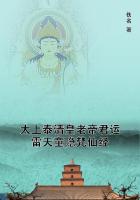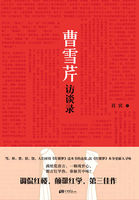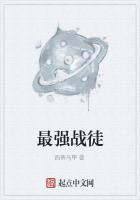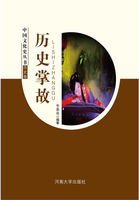New Year's Day of 1831 was pouring out its packets of sugared almonds, four o'clock was striking, there was a mob in the Palais-Royal, and the eating-houses were beginning to fill. At this moment a coupe drew up at the /perron/ and a young man stepped out; a man of haughty appearance, and no doubt a foreigner; otherwise he would not have displayed the aristocratic /chasseur/ who attended him in a plumed hat, nor the coat of arms which the heroes of July still attacked.
This gentleman went into the Palais-Royal, and followed the crowd round the galleries, unamazed at the slowness to which the throng of loungers reduced his pace; he seemed accustomed to the stately step which is ironically nicknamed the ambassador's strut; still, his dignity had a touch of the theatrical. Though his features were handsome and imposing, his hat, from beneath which thick black curls stood out, was perhaps tilted a little too much over the right ear, and belied his gravity by a too rakish effect. His eyes, inattentive and half closed, looked down disdainfully on the crowd.
"There goes a remarkably good-looking young man," said a girl in a low voice, as she made way for him to pass.
"And who is only too well aware of it!" replied her companion aloud--who was very plain.
After walking all round the arcades, the young man looked by turns at the sky and at his watch, and with a shrug of impatience went into a tobacconist's shop, lighted a cigar, and placed himself in front of a looking-glass to glance at his costume, which was rather more ornate than the rules of French taste allow. He pulled down his collar and his black velvet waistcoat, over which hung many festoons of the thick gold chain that is made at Venice; then, having arranged the folds of his cloak by a single jerk of his left shoulder, draping it gracefully so as to show the velvet lining, he started again on parade, indifferent to the glances of the vulgar.
As soon as the shops were lighted up and the dusk seemed to him black enough, he went out into the square in front of the Palais-Royal, but as a man anxious not to be recognized; for he kept close under the houses as far as the fountain, screened by the hackney-cab stand, till he reached the Rue Froid-Manteau, a dirty, poky, disreputable street--a sort of sewer tolerated by the police close to the purified purlieus of the Palais-Royal, as an Italian major-domo allows a careless servant to leave the sweepings of the rooms in a corner of the staircase.
The young man hesitated. He might have been a bedizened citizen's wife craning her neck over a gutter swollen by the rain. But the hour was not unpropitious for the indulgence of some discreditable whim.
Earlier, he might have been detected; later, he might find himself cut out. Tempted by a glance which is encouraging without being inviting, to have followed a young and pretty woman for an hour, or perhaps for a day, thinking of her as a divinity and excusing her light conduct by a thousand reasons to her advantage; to have allowed oneself to believe in a sudden and irresistible affinity; to have pictured, under the promptings of transient excitement, a love-adventure in an age when romances are written precisely because they never happen; to have dreamed of balconies, guitars, stratagems, and bolts, enwrapped in Almaviva's cloak; and, after inditing a poem in fancy, to stop at the door of a house of ill-fame, and, crowning all, to discern in Rosina's bashfulness a reticence imposed by the police--is not all this, I say, an experience familiar to many a man who would not own it?
The most natural feelings are those we are least willing to confess, and among them is fatuity. When the lesson is carried no further, the Parisian profits by it, or forgets it, and no great harm is done. But this would hardly be the case with this foreigner, who was beginning to think he might pay too dearly for his Paris education.
This personage was a Milanese of good family, exiled from his native country, where some "liberal" pranks had made him an object of suspicion to the Austrian Government. Count Andrea Marcosini had been welcomed in Paris with the cordiality, essentially French, that a man always finds there, when he has a pleasant wit, a sounding name, two hundred thousand francs a year, and a prepossessing person. To such a man banishment could but be a pleasure tour; his property was simply sequestrated, and his friends let him know that after an absence of two years he might return to his native land without danger.
After rhyming /crudeli affanni/ with /i miei tiranni/ in a dozen or so of sonnets, and maintaining as many hapless Italian refugees out of his own purse, Count Andrea, who was so unlucky as to be a poet, thought himself released from patriotic obligations. So, ever since his arrival, he had given himself up recklessly to the pleasures of every kind which Paris offers /gratis/ to those who can pay for them.
His talents and his handsome person won him success among women, whom he adored collectively as beseemed his years, but among whom he had not as yet distinguished a chosen one. And indeed this taste was, in him, subordinate to those for music and poetry which he had cultivated from his childhood; and he thought success in these both more difficult and more glorious to achieve than in affairs of gallantry, since nature had not inflicted on him the obstacles men take most pride in defying.
A man, like many another, of complex nature, he was easily fascinated by the comfort of luxury, without which he could hardly have lived;and, in the same way, he clung to the social distinctions which his principles contemned. Thus his theories as an artist, a thinker, and a poet were in frequent antagonism with his tastes, his feelings, and his habits as a man of rank and wealth; but he comforted himself for his inconsistencies by recognizing them in many Parisians, like himself liberal by policy and aristocrats by nature.















